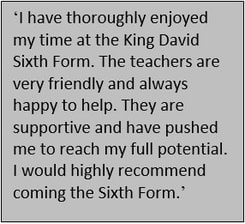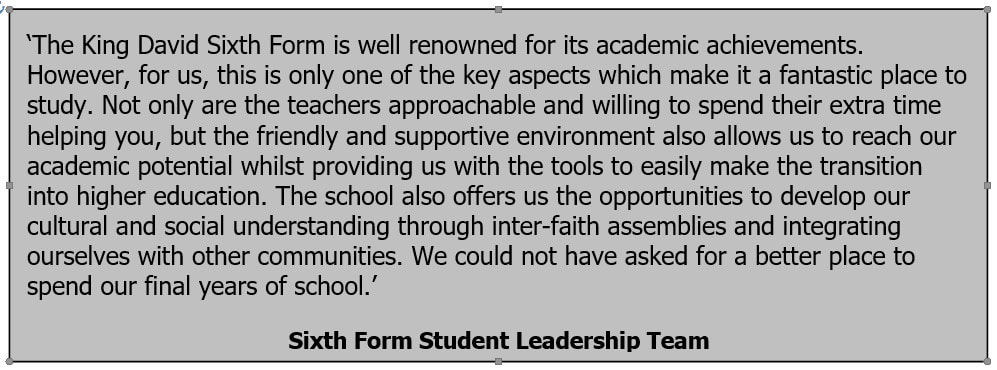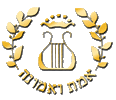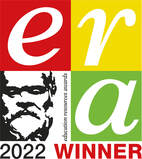SIXTH FORM
Pastoral Care
At The King David Sixth Form we consistently achieve outstanding A Level results and are rated one of the very best comprehensive schools in the country. The vast majority of our students go on to the destination of their choice, from apprenticeships to top universities including Oxford and Cambridge.
This is in large part due to the academic excellence and hard work of the students, whom we are privileged to have in the Sixth Form, but is also the result of careful monitoring of students and their work and the setting of the very highest standards. Students are encouraged to develop independence and take responsibility for their own learning at Sixth Form level with a Sixth Form library dedicated to private study. In addition to reports and parents’ evenings, updates on students are collected from subject teachers and communicated to parents every half term in order to monitor progress. Students review their grades with their form tutor who will act as their guide and first point of contact for the two years of Sixth Form. Students are encouraged to have an adult-to-adult dialogue with teachers and are placed at the heart of the self-review and target-setting process. We pride ourselves on our positive relationships with students in the Sixth Form. Where there are problems we are proactive in intervening early and meeting with parents and students to discuss any significant areas of concern. We also offer an extensive mentoring programme, where a member of staff is specifically assigned to individuals in need of that little bit of extra care-and-attention. Mentors meet with students every week to offer support, discuss their progress and set targets. Many students have benefited from the system, testifying that it has helped them to become more organised and meet deadlines as well as minimising stress and improving their results. The Sixth Form pastoral team keeps parents informed at all stages and encourages them to communicate problems or issues affecting the progress of their child to the school by ‘phone, email or in writing. One of the best ways parents can support the school and their children is by ensuring full attendance whenever possible. We understand that the ages of 16-18 are busy with University open days and other activities such as driving lessons. We would urge parents to have an overview of this and ensure that absence is kept to a minimum. Driving lessons and tests should be arranged when students do not have lessons and University open days are restricted to a maximum of 3 school days over the academic year, as regular absences have a detrimental effect on students’ progress. We would also urge students to keep any part-time employment out of school to a minimum. Sixth Form study is a full-time job! Preparation for Life After Sixth FormThe school’s outstanding record of gaining students places on university courses and apprenticeships is largely due to the intensive and personalised support that is offered. This begins in Year 12 with a detailed overview of the application processes for both students and parents at the school’s UCAS evening, supported by tutorial guidance and an opportunity for all students in Year 12 to meet with representatives of the universities at the Manchester UCAS convention. Students are then given detailed information outlining key aspects of the UCAS process and offered exhaustive guidance on completing an application, as well as personalised individual support with course choices and UCAS form completion for each student in Year 13. Students applying for apprenticeships are also individually catered for and given personalised support on finding and applying positions.
The school also offers additional bespoke support for students applying to particularly competitive university courses. Students are given the opportunity to visit Oxford and Cambridge and meet representatives to ask questions and find out more. They are also given help with completing the additional forms, which are part of a university application for these institutions, as well as continuing individual support with mock interviews. Students are given intensive support and enrichment opportunities for applications for healthcare courses including medicine and dentistry. The process begins in Year 12, with access to the medical society, preparation for aptitude tests, personalised support in putting together a successful UCAS application and interview practice and advice from a wide range of medical professionals from medical students to consultants. Further details on the university application process can be found at: www.ucas.com Further details on the apprenticeship process can be found at: www.gov.uk/further-education-skills/apprenticeships Finance for UniversityFinancial support and scholarships for Jewish students going to university are available from the Finnart Trust and Anglo-Jewish Association. Applications for either award need to be returned to school for processing by 31st March. Application forms can be found at http://www.finnart.org/ and http://www.anglojewish.org.uk/.
Information on student loans and grants is available from student finance at; http://www.direct.gov.uk/en/EducationAndLearning/UniversityAndHigherEducation/StudentFinance/index.htm, while details of changes to university funding are available at: http://www.bis.gov.uk/studentfinancec Extracurricular LifeVolunteering
The school also encourages the development of leadership skills and communal involvement in all its Sixth Form students. They participate in many hours of voluntary work within the community and beyond, in particular the Federation of Jewish Services’ Time For You Befriending Scheme, whereby students visit and befriend senior citizens. The Fed is one of the leading social care charities for the Jewish Community of North and South Manchester, and has its own website at www.thefed.org.uk Students are also regular visitors at Brookvale, Broughton House, Heathlands and the Nicky Alliance Centre and in addition visit and befriend those in the community, of their own age, who are disabled. They take leadership roles and support a wide range of youth groups. Prefects
Sixth Formers are expected to play a leadership role within the school community and all Year 12 and 13 students are offered the chance to become prefects. Prefects are expected to be role models for lower school pupils and to demonstrate a willingness to put themselves out to help others. They make a huge contribution to school life including the following areas:
We are grateful for the work our prefects carry out in school and the position is a perfect opportunity for students to enhance their CVs as they approach the ever-more-competitive world of university applications. Student leadership team
In the Summer term of Year 12 students are selected for the positions of Head Boy, Head Girl and Deputies. They comprise the leadership team of the student body and are expected to set the tone and lead by example. Typical duties of the Heads of School and their Deputies include running the school council, representing the views of their peers and lower school students, visiting school assemblies, running minyan, organising charity events and leading debates in school on current issues. Deputies and Heads work hard to develop the school council and mentor the younger students. Careers AdviceAt The King David High School students are encouraged to undertake work experience. Many students organise this independently in many different areas such as medicine, dentistry, pharmacy, or accountancy. Students also have the opportunity to talk to a professional careers advisor, and the bi-annual careers evening gives students the opportunity to speak to university representatives, professionals and past students who are currently undertaking gap year programmes in industry. Students have been successful in securing jobs during their year out with Pinsent Masons Law Firm, KPMG, PWC and Deloitte and are given personalised, up-to-the-minute guidance on applications for internships, apprenticeships and the world of work.
Academic EnrichmentThe Sixth Form is proud of its reputation for academic excellence and high achievement with all students. We offer academic enrichment programmes for those keen to go beyond the curriculum, really stretching them to fulfil their potential within and beyond their subjects.
The programme aims to raise the aspirations of students, extend academic range and depth of study, support students in applications to the most competitive university courses and cultivate a real love of learning beyond that which is required for A Level success. We offer the following opportunities, designed to make them stand out from the crowd:
The AQA Extended ProjectUniversities are increasingly looking for evidence of individual research skills and academic stretch beyond students’ A Level courses. The AQA Extended Project gives students an opportunity to work in depth on something that they have a passion for - students choose the topic and then work with an individual teacher supervisor who has expertise in the field.
The project can be related to one of their subjects (but doesn’t have to be) but must not be something that they are submitting as a part of their course. Universities are generally very enthusiastic about the project and students spend a day at Manchester University during their research. You don’t have to be an A* student to undertake a project but do have to have a passion for your topic and be ready to work hard to see it through in addition to your studies. The project can take a variety of forms but has to include an element of research. It can be an essay, presentation, performance, film, artefact, piece of music etc. If it is a piece of written work it should be about 5000 words long. If it is not a piece of written work it needs to be accompanied by a 1000 word report. Students will complete the majority of the work for their project at the end of Year 12 and over the summer holiday. It counts as an AS Level but goes to A* and so is worth 8 to 28 UCAS points. TripsEducation doesn’t just take place inside the classroom. At King David we seek to enrich the syllabi with trips and visits when possible. There is an annual year 12 trip to Poland, and other trips have included the Music tours to Rome and Paris, the History trip to Berlin, the Politics trip to Parliament, and Business and Economics trips to Prague, Paris, Brussels and New York.
Choosing Your Sixth Form CoursesChoosing the subjects that you want to study at Sixth Form is a big decision, so think carefully, do your research and talk to your teachers and other advisors.
Most students take 3 subjects in years 12 and 13 although some may opt to take 4. In the Sixth Form at King David High School we offer two, equally valid, types of courses:
Students may study traditional A Levels or applied and vocational A Levels equivalents, or a combination of both. Things to think about when making your choice: What GCSE subjects do you currently enjoy, and what are you good at? If you’re interested in taking up a new subject that you haven’t studied at GCSE this is a risk. Make sure you know what the subject involves and are going to be happy studying it for two years. How do you learn best? If you are someone that thrives on exam pressure the traditional A Levels may well be for you. If you cope better with the more regular deadlines of coursework the applied and vocational subjects could be better. What are the entry requirements for the subject? Make sure you’re going to get the required grades at GCSE to get onto the subject at Sixth Form (see below). Work hard to get the grades that you need. What are your plans for the future? Many students have no idea what they want to do after Sixth Form, and that’s fine. However, if you do have a clear idea of a university course or career you want to pursue make sure you’re taking any required subjects. The websites below might help, or else talk to a member of the Sixth Form Team: There is some good advice on this website: https://university.which.co.uk/advice/a-level-choices Informed Choices is a document produced by the Russell Group (traditional universities) on the subjects that they recommend for particular degrees: https://www.russellgroup.ac.uk/media/5686/informed-choices-2018-1-6th-edition-final.pdf You can also research courses more specifically using the UCAS university application site: https://digital.ucas.com/search This site profiles different careers and the subjects that are useful to access them: www.prospects.ac.uk |



